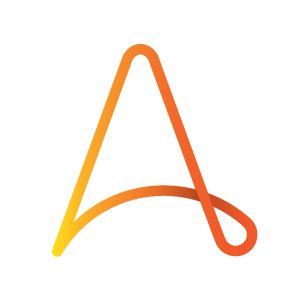Questions
- Can you talk a little bit about how you use Zapier?
- Can you describe your stack of tools and what some of your Zapier automations do for you?
- How many of your zaps involve Airtable piping data in and out of Zapier?
- What do you pay for Zapier?
- And about how many tasks per month is that for you?
- Did you think about that while designing your zaps, the frequency of tasks that would happen?
- I'm curious just on pricing, if you have thoughts on what price it would have to be for you to start thinking about not using Zapier. Like at a hundred bucks a month, would you still use it?
- What don't you like about Zapier, and what do you wish it would let you do that it doesn’t?
Interview
Can you talk a little bit about how you use Zapier?
Guest: I have a bunch of apps going that are doing stuff for me all the time, but I don't know that I'm like the most sophisticated user. I haven't upgraded my plan so that I can do branching, logic, and stuff like that. I haven't really needed it.
For a non-technical person, it's just a ton of fun. Like it's actually enjoyable to make zaps because I think you get what I imagine a developer feels like when they build something and it just works. And if you're not technical, you don't really get that feeling otherwise. So I think it's pretty cool in that regard.
I've never actually measured the time saved by building these apps and making them do their thing but I can only imagine. I probably have a dozen apps running right now that save me, I don't know, five hours a week. It’s just like mundane stuff that I was previously doing manually.
I have also definitely bought into the idea that, especially if you're like a solopreneur, you've got to just automate every possible thing. And I also admire Zapier's business to the point that it frustrates me, because what they have built seems to me like the perfect business. Like, it's not competitive with anyone and it makes everybody's product better.
So, it’s almost annoying that they figured out how to do that—in a way that I respect, like it's awesome, but with the product they've built and the partnership stuff that they've got and the ecosystem around it, it's like a perfect business.
Can you describe your stack of tools and what some of your Zapier automations do for you?
Guest: I use like six or seven tools on an almost daily basis, which would be like, Slack, Spark for email, Notion for docs, Todoist for project management, Ghost for my CMS, and ConvertKit for email.
For zaps, we have a couple of—these are such random use cases, but one example of that would be that as part of our Pro offering we pair you up for a monthly one-on-ones with a stranger. And so once a month I export everybody from Podia, I slap them in a Google Sheet, I randomize them, and then I have a zap that actually sends the emails out. And then I plug in everybody's names and email addresses and try to make it feel very personal.
So it'd be like “Alex, meet Jan, he works at Sacra and he does this and that.” But it automatically sends the emails and I don't have to worry about actually sending them to people, which is huge.
I have one zap set up that just reminds me to do the books every month. Once a month it sends an email to me and says, “Hey, don't forget to do last month's books.” Which just like a dumb thing that I was forgetting to do a lot.
I have one for people who sign up for our community and that is one of our better ones. So there's an Airtable form for people to apply. When people apply, a couple of things happen: one is that a zap sends me a notification that says so-and-so applied, and I can approve or reject them. And then it sends me to an Airtable base. Part of the questionnaire that they fill out asks if they would like to be on our email list, so if they say yes, it will automatically add them to ConvertKit and tag them with the right tags so they start getting our emails. And then that also triggers a welcome series.
Then like once a day, I go look in the Airtable base. I see all the people who are in there, and you can’t actually invite someone to a Slack channel via Zapier, which is annoying, so I have to do that part manually. And then I check a box to say that part is done.
I have another series of zaps that handles our job listings stuff in the Slack community. So we have a landing page with a Gumroad “Buy Now” button if you want to buy a job listing. And if someone purchases, then a zap grabs their email address from Gumroad and sends them an Airtable form, which they then fill out, and then the zap continues on and sends a post that there’s a new job listing to the Slack community in the appropriate channel.
And I probably could do this with branching logic, but what I did was I just set up two identical zaps, because we sell two different types of job postings. And then there's a filter. So if you apply through an email address, it will send you the form that includes the email address field. If you apply through a URL, it sends you the form with the URL, but the way they work is that one says, “if there is an email address, send this thing, if there's not, send this thing.” And I just do that because I can’t customize it on the Slack end. So in order for it to look right, I need to use two separate forms to do that.
Some other ones that I have are just like redundancies—like for example, I don't love the way Podia keeps track of your customers. And it's difficult to export. So anytime someone signs up, I also just have Zapier drop their name in a spreadsheet, and that makes it easier. I find it's easier for me to keep a master list of who's a customer and who's not.
Guest: Probably more than half. I would have thought that there would be native integrations for emailing from Airtable, but I guess there isn't one. Also, I don’t pay for Airtable, I use the free version, and I would have to pay like 12 bucks a month to use their version of automations.
I’m being pretty stingy here, but yeah, Zapier already covers my bases.
What do you pay for Zapier?
Guest: I think I pay 30 bucks a month.
And about how many tasks per month is that for you?
Guest: I can tell you that. So month to date? I’m at 254 out of 700 tasks. That's three quarters of the way through my billing period. Yeah, it can get tricky if you have zaps that trigger a lot.
Did you think about that while designing your zaps, the frequency of tasks that would happen?
Guest: Whether or not they would kick me into a bigger plan? No, I didn't. Although to be honest, if it did, I guess I don't really care. For most of these things, if more things are happening, that's probably good for me.
I'm curious just on pricing, if you have thoughts on what price it would have to be for you to start thinking about not using Zapier. Like at a hundred bucks a month, would you still use it?
Guest: Yeah, that’s interesting. I'm inclined to say that I would, because it's not that difficult for me to imagine that if it saves me even a few hours a week, then it's still worth that.
I'm trying to imagine a price point where I wouldn’t pay it—maybe like $500 a month.
At $200 I would probably be like, really? That sucks. I probably wouldn't do it $200 a month. But $30 is a nice price point for what I do with Zapier. Like, I'm never going to leave. I don't max out my stuff. My usage is pretty low. I think I'm a great customer. I would pay more though. I would pay more if I had to.
What don't you like about Zapier, and what do you wish it would let you do that it doesn’t?
Guest: Let me invite people directly through a Slack channel. That's really annoying. It doesn't do that. Their Slack integration is obviously not meant for communities, it's definitely built for teams using Slack, which I understand, but that's a small thing that comes to mind.
I really wish it was easier to track down errors. Like sometimes if a zap doesn't work, it is so confusing to figure out why it doesn't. I had an example recently where for our monthly one-on-one call zap, I could not get it to work. It was driving me insane. And then like deep in the integration docs, I found a mention of how if you have a colon in the title of a spreadsheet, your zap might not work. And it took me like two hours to figure that out. It was so annoying. To me, that field should just be flagged so I can just fix it rather than me spending two hours troubleshooting. And like I sent an email to Zapier, which I didn't hear back from them for a day, and then they didn't even have the answer, but by then I had figured it out anyways.
Another thing I wish they would do is have a retroactive trigger. You set up a zap and it’s like, “Okay, from now into the future, this thing will happen.” But sometimes you actually want to do it retroactively. There's workarounds for it, but I feel like that should be built in somehow.
And they should really have more Webflow style tutorials, like just pay their community to make tons and tons and tons of tutorial videos to inspire people and give them more ideas of ways to use apps.
You know, I tweeted something recently or maybe I put something in our Slack community about Zapier, and I got a bunch of responses from people saying I would love for you to show me how you, a non-technical person automate things.
Like there are still people who are just like intrigued by the idea. Which I thought was cool. I've never tweeted or put something in a Slack channel about a tool and had anybody care enough to be like, “Show me how you use it.”
I guess that's a double edged sword for Zapier too, because it’s cool that there's that interest. But then they also have that blank slate problem. Like it can do anything, so where do you start?
Disclaimers
This transcript is for information purposes only and does not constitute advice of any type or trade recommendation and should not form the basis of any investment decision. Sacra accepts no liability for the transcript or for any errors, omissions or inaccuracies in respect of it. The views of the experts expressed in the transcript are those of the experts and they are not endorsed by, nor do they represent the opinion of Sacra. Sacra reserves all copyright, intellectual property rights in the transcript. Any modification, copying, displaying, distributing, transmitting, publishing, licensing, creating derivative works from, or selling any transcript is strictly prohibited.

 Jan-Erik Asplund
Jan-Erik Asplund








